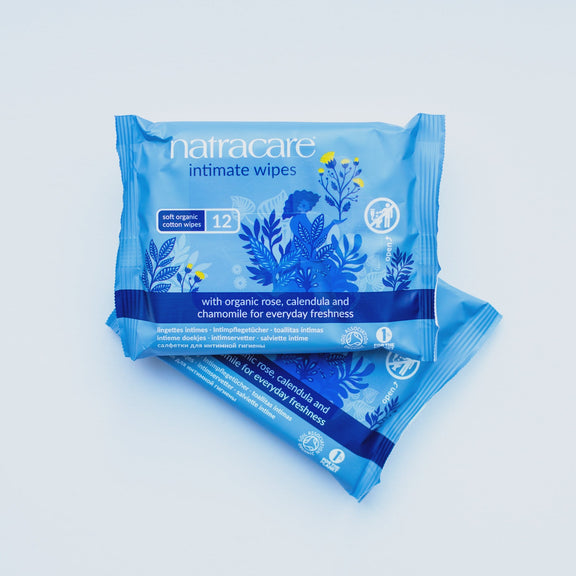What Are the Most Common Vaginal Infections?
Most women will experience a vaginal infection at some point in their life, and despite being a pain in the proverbial, they’re incredibly common (and usually, easily managed). But before you can treat a vaginal infection, you need to know what you’re dealing with.
In this blog we’re going to tackle some of the most common vaginal infections, outline their causes, discuss their symptoms, and give you the lowdown on when to seek medical advice.
After all, Making Vaginas Happy® is what we do!
Bacterial Vaginosis (BV)
What is Bacterial Vaginosis (BV)?
Bacterial vaginosis occurs when there's an imbalance in the bacteria that naturally reside in the vagina. Typically, the good bacteria (lactobacilli) are outnumbered by bad bacteria.
What are the causes of BV?
BV can be triggered by:
- Douching (just don’t)
- Using scented soaps or vaginal deodorants (nope!)
- Having multiple sexual partners (no judgment here)
- Smoking
What are the symptoms of BV?
BV can present with several symptoms, including:
- A thin, watery, grey or white discharge
- A strong, fishy odour, especially after sex
- Mild irritation or itching
When should I see a doctor for BV?
You should see a doctor if you:
- Experience symptoms for the first time
- Have recurrent episodes of BV
- Are pregnant and develop symptoms, as BV can lead to pregnancy complications
Can a pharmacist help with BV?
Yes, absolutely! A pharmacist can recommend over-the-counter treatments for BV, such as antibacterial gels and creams. However, a proper diagnosis from a healthcare professional is advised if you're experiencing symptoms for the first time.
Thrush
What is thrush?
Thrush, also known as vaginal candidiasis, is a yeast infection caused by the overgrowth of Candida albicans.
What causes thrush?
Thrush can be caused by any of the following:
- Antibiotic use
- Hormonal changes (e.g. pregnancy, menopause)
- Uncontrolled diabetes
- A weakened immune system
- Wearing tight, non-breathable clothing
What are the symptoms of thrush?
Thrush can cause a variety of symptoms, including:
- Thick, white, cottage cheese-like discharge
- Severe itching and irritation around the vagina and vulva
- Redness and swelling of the vulva
- Pain during sex or urination
When should I see a doctor for thrush?
Consult a doctor if you:
- Experience thrush for the first time
- Have recurrent episodes (more than four times a year)
- Do not see improvement after using over-the-counter treatments
- Are pregnant or have a weakened immune system
Can a pharmacist help with thrush?
Yes, pharmacists can provide antifungal creams, pessaries, and oral tablets to treat thrush. If symptoms persist or recur, it's important to consult a doctor to check that nothing else is going on.
Vaginitis
What is Vaginitis?
Vaginitis is soreness and swelling in and around the vagina. It's common and usually treatable.
What causes vaginitis?
Vaginitis can be caused by:
- Other infections (bacterial, yeast, trichomoniasis)
- Irritants (soaps, detergents, spermicides)
- Hormonal changes (menopause, pregnancy)
What are the symptoms of vaginitis?
Common symptoms for vaginitis include:
- Abnormal discharge with an unusual colour or odour
- Vaginal itching or irritation
- Pain during intercourse
- Burning sensation when urinating
- Light vaginal bleeding or spotting
When should I see a doctor about vaginitis?
Treatment depends on the cause of the vaginitis. Over-the-counter antifungal or antibacterial treatments can be helpful for mild infections. However, a doctor should evaluate persistent or severe symptoms to prescribe the appropriate medication and rule out more serious conditions.
How can I prevent vaginal infections?
As well as understanding the most common types of vaginal infections, it’s important to know how to maintain good vaginal health to help prevent infection from occurring in the first place.
The biggie is your pH-balance, because maintaining the right vaginal pH is crucial for your intimate health. The optimal pH range (between 3.8 and 4.5) supports the growth of beneficial lactobacilli bacteria, which protect against infections. An imbalanced vaginal pH can lead to discomfort, infections (such as bacterial vaginosis or yeast infections), and other unwanted complications.
Here’s how to protect your vaginal pH and intimate health:
- Avoid douching and using scented products in the vagina
- Wear cotton underwear and avoid tight-fitting clothes
- Maintain a healthy diet and stay hydrated
- Practice good hygiene, wiping from front to back after using the toilet
- Use protection during sexual activity
When should I see a doctor for vaginal infections?
If you have an infection but you’re not sure whether to see your doctor about it, here are some not-to-be-ignored signs that you might require medical attention:
- Unusual or severe symptoms, such as intense itching, burning, or swelling
- Recurrent infections despite treatment
- Symptoms during pregnancy
- Discharge that is yellow, green, or has a strong odour, which may indicate a more serious infection
Should I have a routine check-up?
Regular gynaecological check-ups are essential for maintaining vaginal health and catching any issues early on. Don't hesitate to book an appointment with your GP or a specialist if you're concerned about your symptoms – and always remember to keep up to date with your smear tests!
Caring for your vagina
Understanding the differences between vaginal infections is crucial in caring for your intimate health. And while pharmacists can offer effective treatments in many cases, don't hesitate to see a doctor if you’re concerned.
If you want to keep your vagina as healthy and happy as can be, check out our full range of vagina-friendly products – all pH-matched to your delicate intimate area so you’ll never have to worry about an unwelcome reaction!









